
RaboResearch agricultural analyst Dennis Voznesenski presented a session on global markets and how they are impacting local grain and land prices.
GRAIN growers, cattle producers and mixed farmers attending a Rabobank function at Mt Tyson on the Darling Downs last Thursday heard volatility in global markets and trade will continue indefinitely.
It was one of the insights which featured a presentation by RaboResearch agricultural analyst Dennis Voznesenski at the annual event held for the bank’s southern Queensland clients.
Mr Voznesenki said global uncertainty, such as the war in Ukraine and its impact on the natural gas and grain markets, as well as the strained relationship with China, were all contributing to volatility in agriculture markets.
He said the trade status quo before COVID-19 and the war in Ukraine will not be returning in the short term.
“We are not going back to that normal; we are going to be in a new normal going forward,” Mr Voznesenski said.
Input pricing to ease
Mr Voznesenski said Russia cutting its supply of gas to Europe due to global trade sanctions did serve to significantly increase gas prices, causing the cost to produce urea to “absolutely skyrocket”.
He said prices look to ease in the near future as gas supplies look more secure.
“What has happened recently is that Europe has been stocking up for the winter with as much natural gas from as many locations as possible.
“Theoretically over the next 3-4 months, we could see prices decline, but eventually those stocks will run out of natural gas, and they will have to go buy more around the world.
“Those prices will go back up for natural gas…and urea prices will go up as well.”
Mr Voznesenski said there has been a similar ease in potash and phosphate pricing as the market reacts to high stocks in North and South America.
He said this means phosphate has dropped from $1800 per tonne to $1200/t and potash has declined from $1400/t to $850-900/t.
“It takes time to filter through to Australia, but it is good news at least for the short term, say the next 2-4 months.
“Eventually, those stocks in North and South America will run out and those retailers…will only be buying from hand to mouth to ensure they are not in the same loss-making position.”
Floods to impact grain prices
Closer to home, recent extreme rainfall and flooding in New South Wales and Victoria and parts of Queensland and South Australia will hit grain prices in coming months.
Mr Voznesenski said once more growers can harvest their winter crop, there will be a glut of supplies into the market.
“Once it gets dry, everyone is going to start harvesting at the exact same point and everyone is going to start bringing their grain to the bulk-handling system at the exact same time.
“At least to me that signals that, in the very least, it will limit how high prices can go and, in reality, probably means that there is going to be an easing in pricing.”
He said this situation will probably continue until at least April next year.
“The only opportunity I see is that when we move to April-May, when we would have finished harvesting and would have exported a fair bit of grain, that may be an opportunity where our prices could follow [the] global board a bit higher.”
Growth restriction in land values
Mr Voznesenski said these factors impacting farm businesses will also flow on to affect agricultural land values.
He said recent Rabobank research indicates that land values are influenced by interest rates, farm production levels and commodity prices.
“For the last 10 years, while we have seen all this incredible growth, all these factors have largely been positive.”
He said it was anticipated these drivers would have a slightly negative impact on land values into the future.
“We still expect growth to continue, just not as quickly as we have seen in the past.
“We don’t expect 20 or plus-20 per cent annual growth in land values, but we still expect to see lower single-digit growth in the coming 5-7 years.”
Mr Voznesenski said, like farm input and grain prices, land values will continue to be impacted by global and local economic volatility.
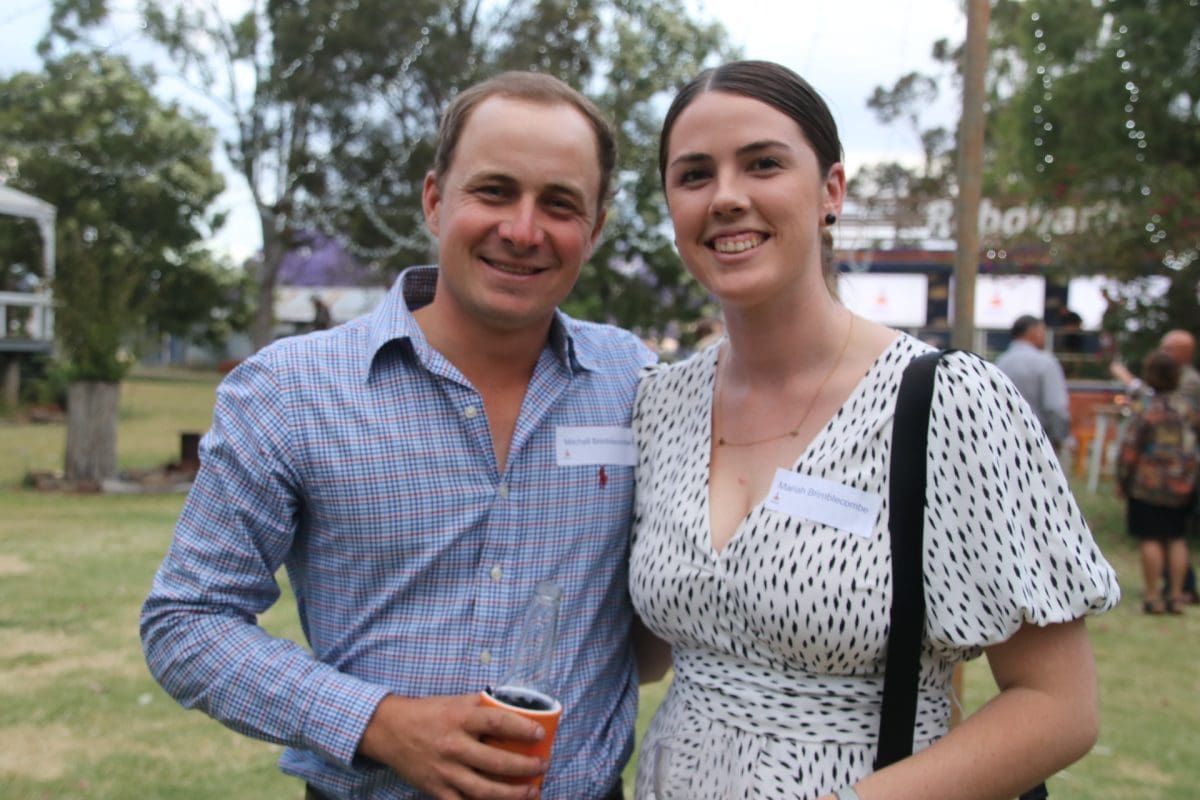
Mitchell and Mariah Brimblecombe from Forest Hill.
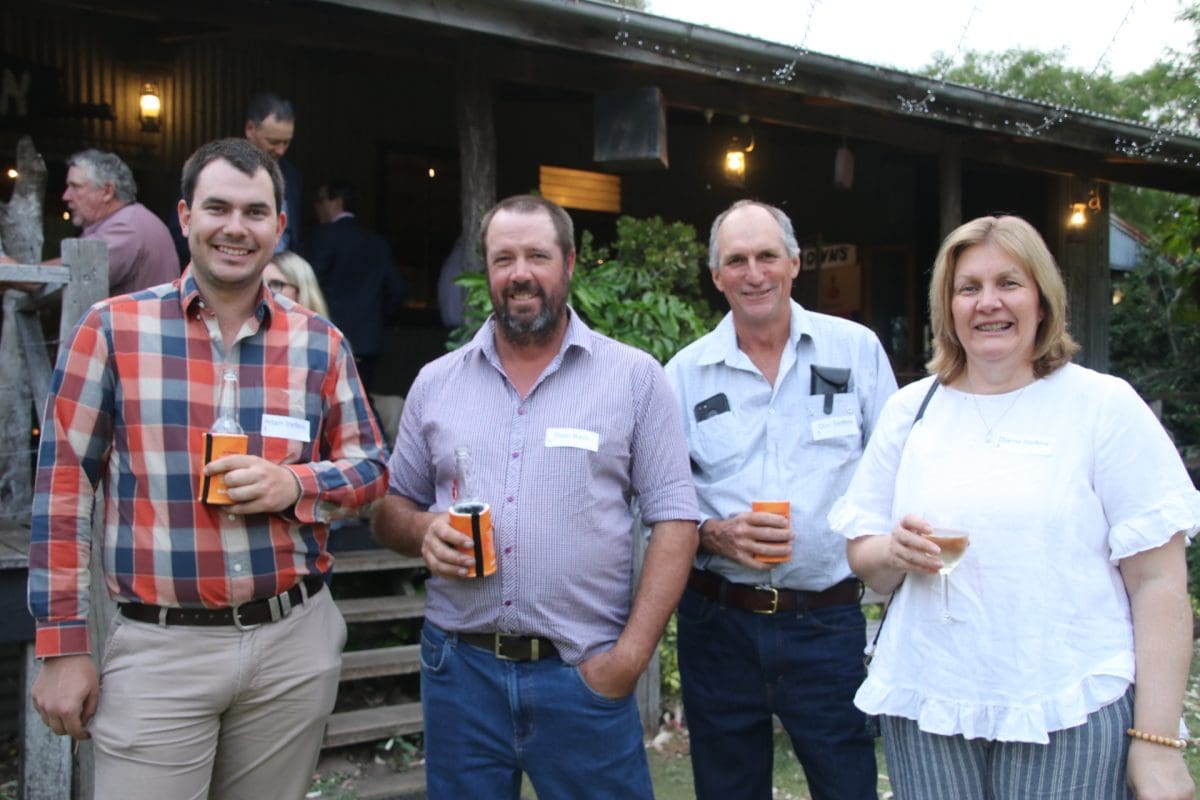
Adam, Don and Dianne Steffens from Felton South with Peter Bach (second from left) of Irongate.
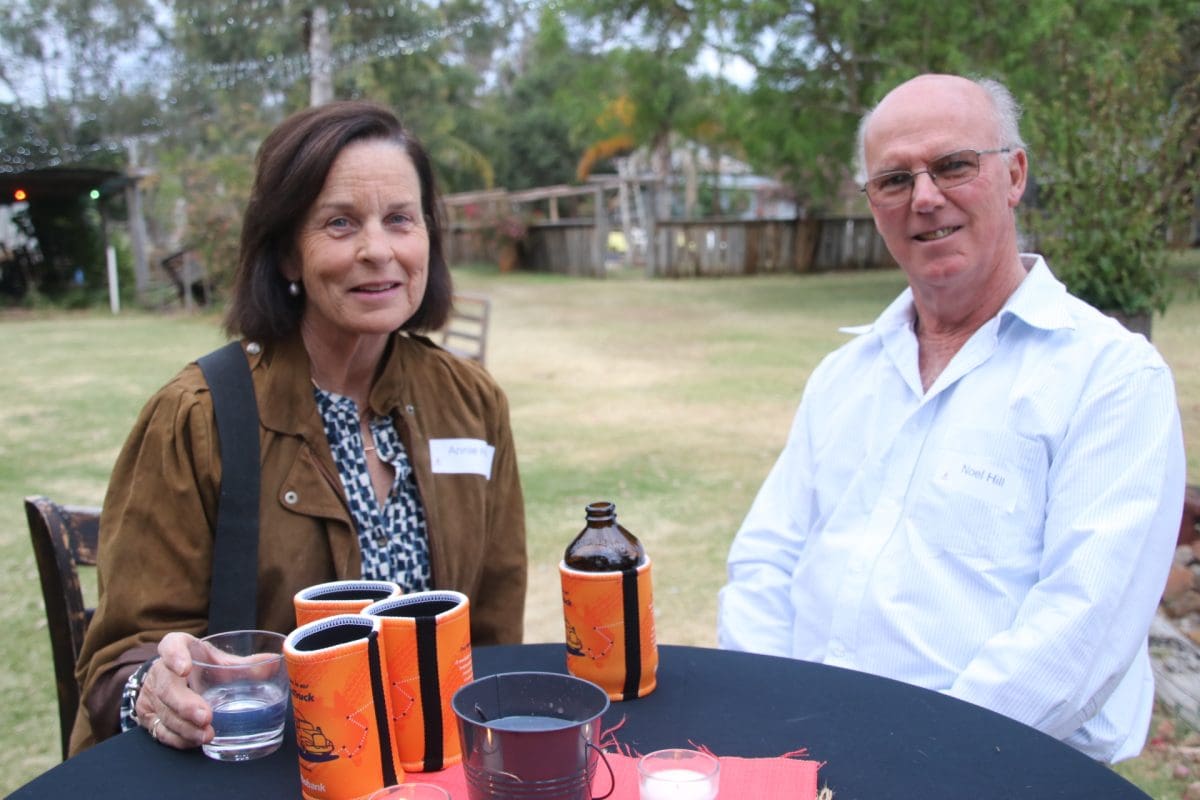
Western Downs cattle producers Annie and Noel Hill
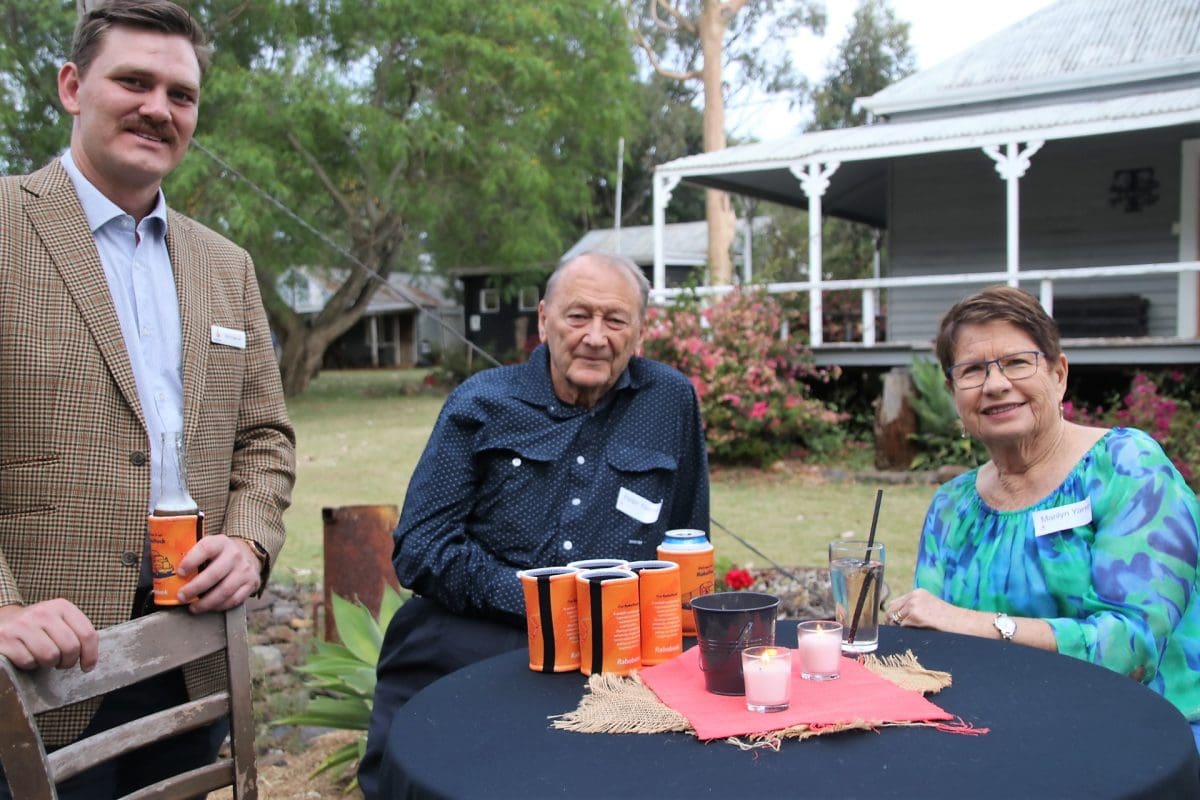
Elliot Barrett from Rabobank with Kalbar mixed farmers Peter and Marilyn Yarrow.
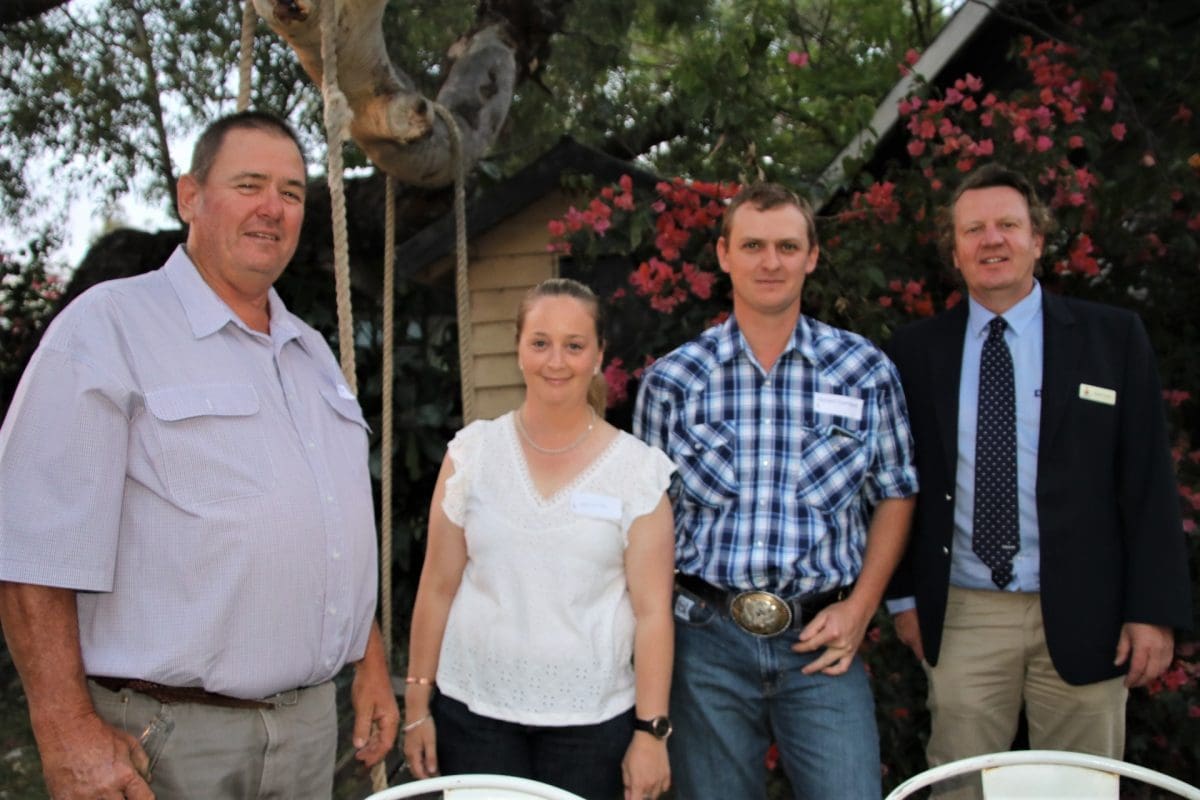
Dennis Cormack, Marissa Holt, Vincent Cormack and Rabobank’s Geoff Tyrell.
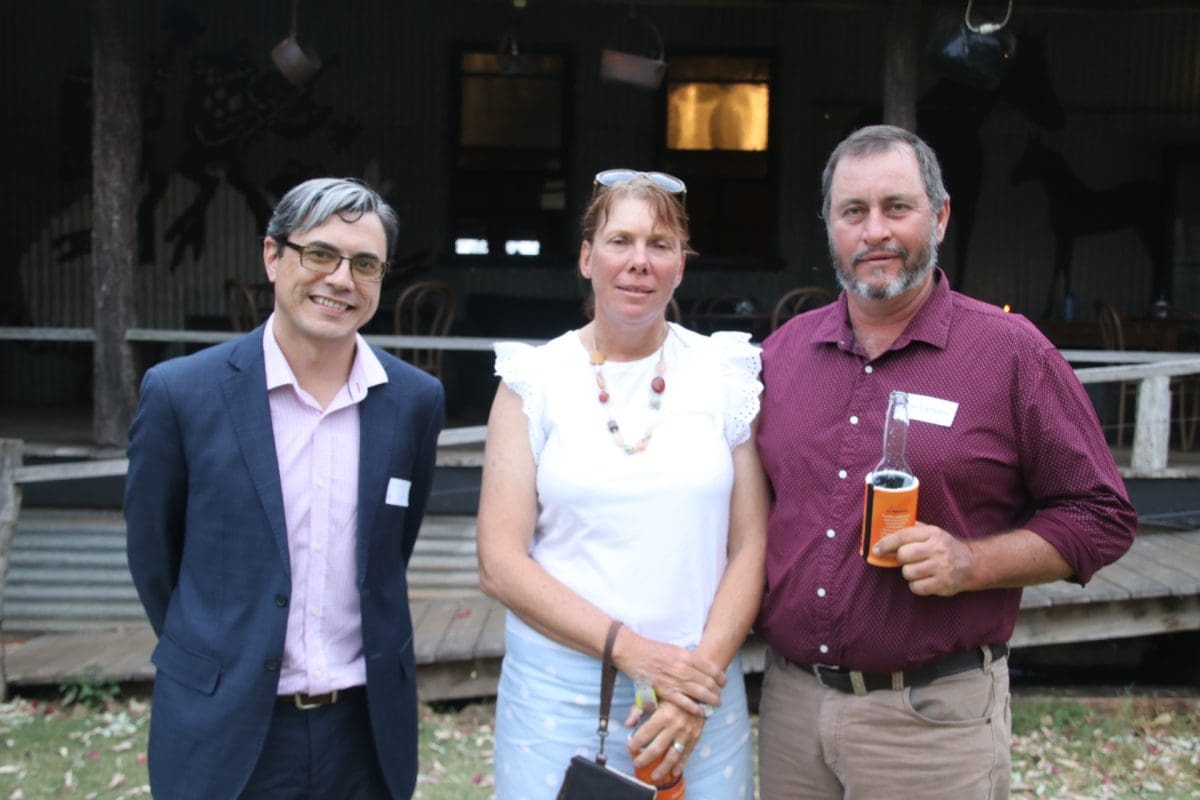
Rabobank Dalby’s Danny Kaiteie with Sue Dowling and Shayne Lambert of Cooyar.

HAVE YOUR SAY